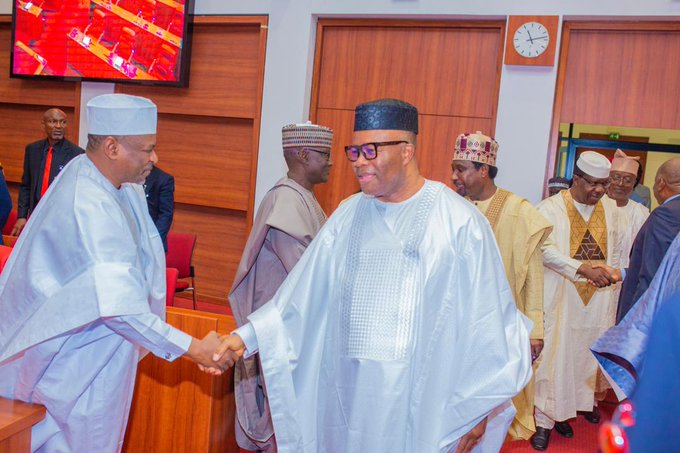The Nigerian Senate has raised serious concerns over the disappointing revenue remittances by Ministries, Departments, and Agencies (MDAs) and some Government-Owned Enterprises (GOEs) to the Federation Account in 2024. This worrying trend, senators believe, is eroding the government’s ability to fund vital infrastructure and social services.
At an interactive session held in Abuja on Monday, the Chairman of the Joint Finance Committee of the Senate and House of Representatives, Senator Sani Musa, criticized the agencies for their lackluster financial performance. The meeting brought together key stakeholders, including the Nigeria Customs Service (NCS), Federal Road Safety Commission (FRSC), Joint Admissions and Matriculation Board (JAMB), Nigeria Immigration Service (NIS), Nigeria Communications Commission (NCC), and the Fiscal Responsibility Commission (FRC).
Widening Revenue Disparity
Senator Musa did not mince words in expressing his dissatisfaction with the financial behavior of the MDAs, noting a glaring disparity between the significant revenues they generate and the negligible amounts remitted to the Federation Account.
“This trend undermines the government’s capacity to fund critical infrastructure and social services, calling into question issues of inefficiency, mismanagement, and possible revenue leakages,” Musa remarked.
He emphasized the committee’s role in ensuring transparency and accountability across the financial operations of these agencies. “Our mandate is clear: to scrutinize revenue projections, assess performance, and ensure statutory remittances are fully adhered to,” Musa stated.
Call for Accountability
Highlighting the importance of collaboration, Musa urged all stakeholders to provide accurate and comprehensive financial data. “Let us approach these tasks with a shared commitment to building a stronger, more accountable fiscal framework for Nigeria,” he said.
The senator also encouraged open discussions about challenges faced by the agencies, urging them to disclose any systemic bottlenecks or financial inefficiencies. “We must confront these issues head-on and work towards sustainable solutions. I call on all of us to please be very open about those areas that need attention, even if they are not immediately presented,” he added.
The Impact of Revenue Leakages
Experts believe the low remittances by MDAs significantly hinder the government’s capacity to implement its economic development agenda. Revenue leakages, inefficiency, and corruption have become recurring issues, affecting the provision of essential services such as healthcare, education, and infrastructure.
Nigeria, Africa’s largest economy, continues to struggle with balancing its budget, as oil revenues – once the mainstay of the economy – have declined. Non-oil sectors are expected to fill the gap, but their contributions remain underwhelming.
Scrutiny of Specific Agencies
During the session, representatives from the listed agencies defended their operations, citing various challenges ranging from outdated technologies to bureaucratic bottlenecks. However, the Senate’s dissatisfaction with their explanations was evident.
The Nigeria Customs Service (NCS), one of the primary revenue-generating agencies, faced intense scrutiny over its inability to meet projected remittances. Similarly, the Federal Road Safety Commission (FRSC) and the Joint Admissions and Matriculation Board (JAMB) were pressed on their revenue performance and spending patterns.
The Bigger Picture
In recent years, the government has made several attempts to address revenue shortfalls by introducing measures such as the Finance Act and reforms in tax administration. However, these efforts have yet to yield the desired results.
Financial analyst Dr. Adebayo Olufemi commented on the matter, saying, “Revenue leakages and inefficiencies in MDAs have been a persistent problem. Until the government enforces strict penalties for non-compliance and introduces technology-driven solutions, we will continue to face these challenges.”
Path Forward
Senator Musa assured Nigerians that the Joint Finance Committee would leave no stone unturned in its mission to reverse this troubling trend. “We are committed to identifying systemic flaws and recommending actionable solutions. The goal is to establish a sustainable financial system that supports national development,” he stated.
The committee also hinted at the possibility of imposing sanctions on agencies that fail to meet their statutory remittance obligations.

